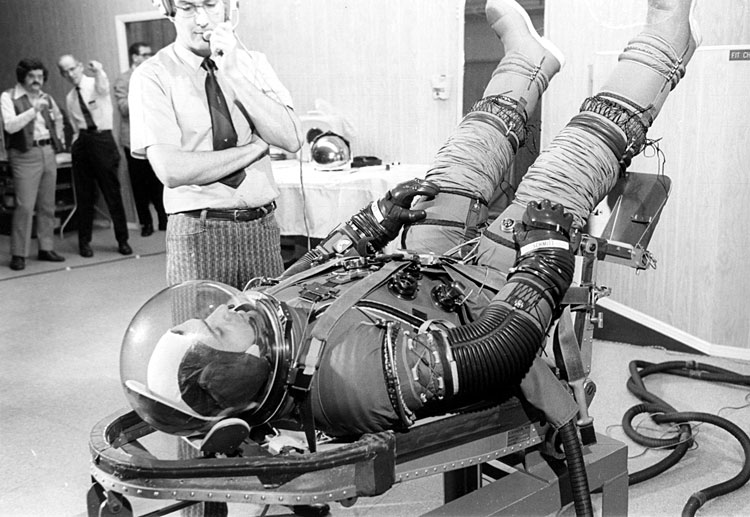A Vice story pointed me to a 1976 NASA study of space settlements, which considered, among other things, the psychological ramifications of living in relative darkness and seclusion out there. What struck me about it is that it seems (to a degree) a commentary for life on Earth during a time of Reality TV and smartphones, for how denatured life can feel now. The line about the danger of fulfilling every wish by pushing a button seems particularly meaningful. An excerpt:
The Solipsism Syndrome in Artificial Environment
Some environments are conducive to the state of mind in which a person feels that everything is a dream and is not real. This state of mind occurs, for example, in the Arctic winter when it is night 24 hr a day. It is also known to occur in some youths who have been brought up on television as a substitute to reality.
Solipsism is a philosophical theory that everything is in the imagination, and there is no reality outside one’s own brain. As a philosophical theory it is interesting because is is internally consistent and, therefore, cannot be disproved. But as a psychological state, it is highly uncomfortable. The whole of life becomes a long dream from which an individual can never wake up. Each person is trapped in a nightmare. Even friends are not real, they are a part of the dream. A person feels very lonely and detached, and eventually becomes apathetic and indifferent.
In the small town of Lund, Sweden, the winter days have 6 hr of daylight and 18 hr of darkness. Most of the time people live under artificial light, so that life acquires a special quality. Outdoors, there is no landscape to see; only street corners lit by lamps. These street corners look like theater stages, detached from one another. There is no connectedness or depth in the universe and it acquires a very unreal quality as though the whole world is imagination. Ingmar Bergman’s film Wild Strawberries expresses this feeling very well.
This state of mind can be easily produced in an environment where everything is artificial, where everything is like a theater stage, where every wish can be fulfilled by a push-button, and where there is nothing beyond the theater stage and beyond an individual’s control.
There are several means to alleviate the tendency toward the solipsism syndrome in the extraterrestrial communities:
-
A large geometry, in which people can see far beyond the “theater stage” of the vicinity to a view which is overwhelmingly visible.
-
Something must exist beyond each human’s manipulation because people learn to cope with reality when reality is different from their imagination. If the reality is the same as the imagination, there is no escape from falling into solipsism. In extraterrestrial communities, everything can be virtually controlled. In fact, technically nothing should go beyond human control even though this is psychologically bad. However, some amount of “unpredictability” can be built in within a controllable range. One way to achieve this is to generate artificial unpredictability by means of a table of random numbers. Another way is to allow animals and plants a degree of freedom and independence from human planning. Both types of unpredictability must have a high visibility to be effective. This high visibility is easier to achieve in a macrogeometry which allows longer lines of sight.
-
Something must exist which grows. Interactive processes generate new patterns which cannot be inferred from the information contained in the old state. This is not due to randomness but rather to different amplification by mutual causal loops. It is important for each person to feel able to contribute personally to something which grows, that the reality often goes in a direction different from expectation, and finally that what each person takes care of (a child, for example) may possess increased wisdom, and may grow into something beyond the individual in control. From this point of view, it is important personally to raise children, and to grow vegetables and trees with personal care, not by mechanical means. It is also desirable to see plants and animals grow, which is facilitated by a long line of sight.
-
It is important to have “something beyond the horizon” which gives the feeling that the world is larger than what is seen.•

